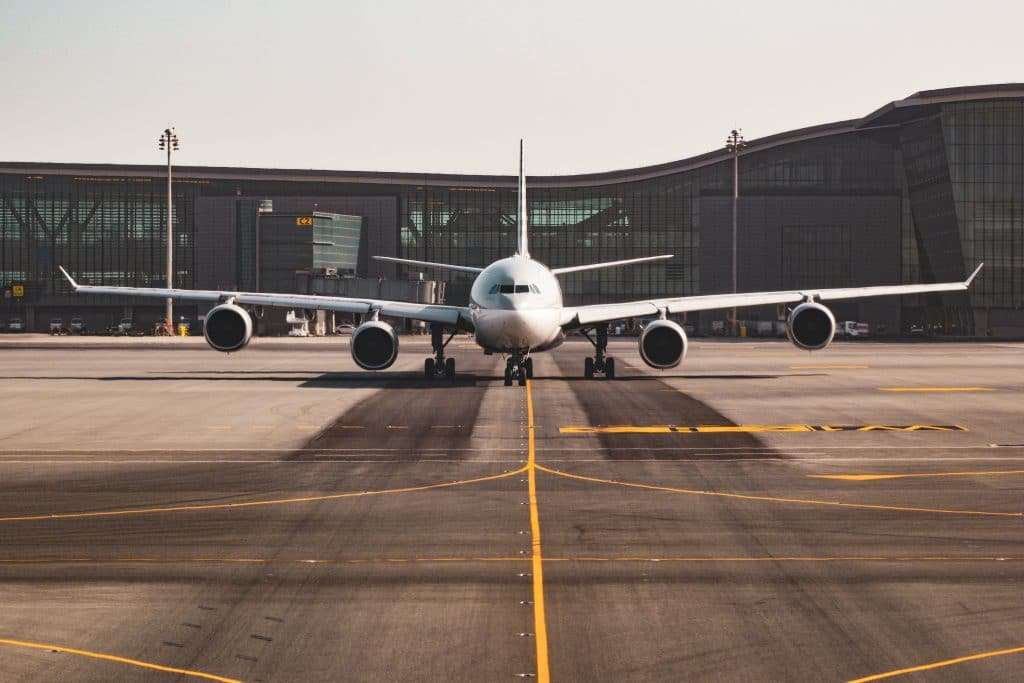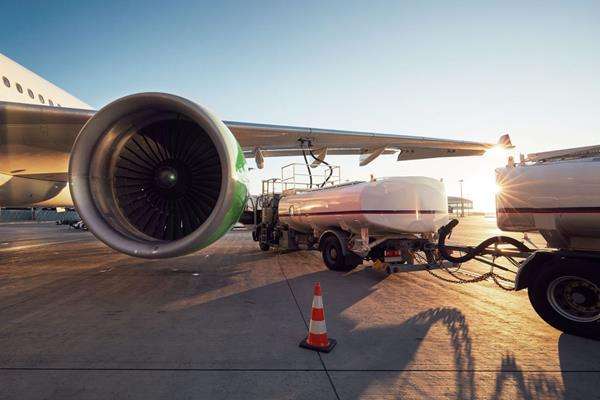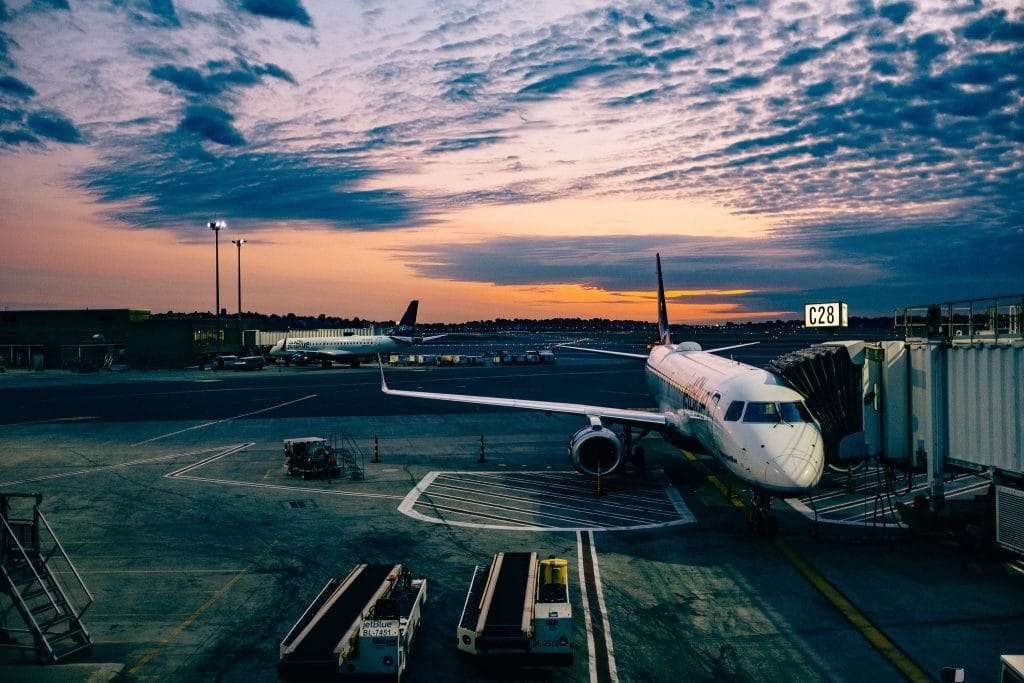LanzaJet is making sustainable jet fuel through carbon capture and sequestration, renewable energy, and other novel tech aimed at decarbonizing the aviation industry.
The aviation industry produces about 2.5 percent of all global CO2 emissions and contributes to about 3.5 percent of climate change. The numbers may seem relatively small compared to other industries, but there are challenges that make reducing aviation emissions difficult. The tech startup LanzaJet, which uses carbon capture technology among other sustainable methods, is working to make a dent in the industry’s carbon footprint.
In a new partnership with Marquis Sustainable Aviation Fuel, LanzaJet says it will begin construction on a new sustainable fuels plant capable of producing 120 million gallons of integrated sustainable aviation fuels (SAF) per year.

The new plant, which will sit on a 2,500-acre industrial site southwest of Chicago, is strategically positioned for global distribution, the company says. The plant is located adjacent to the Illinois River where the fuel can be routed easily to vital pipelines, the company says.
In December, the world’s first passenger flight running on SAF took off from Chicago’s O’Hare airport en route to Washington D.C. The United Airlines flight used 50 percent SAF, the current maximum allowed by the FAA.
Sustainable aviation fuel
According to Our World In Data, one of the key challenges in greening air travel is that the solutions to decarbonization are few and far between.
“We can deploy renewable and nuclear energy technologies, and transition to electric cars. But we don’t have proven solutions to tackle aviation yet,” it says.
The tech is speeding up, though. Airbus says it will produce the first zero-emissions aircraft by 2035. Rolls-Royce just broke speed records with its electric aircraft, the Spirit of Innovation. The first electric passenger aircraft, Eviation’s The Alice, is expected to take its maiden flight soon.
But the tech, especially when it comes to electric planes, is years behind electric vehicles due to vehicle size and the limitations that puts on batteries.
Sustainable jet fuel alternatives still appear to be the industry’s best bet for reducing emissions in the immediate future.

LanzaJet says the new plant will incorporate a mix of low-carbon feedstocks to produce the SAF, as well as a renewable diesel using LanzaJet’s Alcohol-to-Jet process that employs on-site carbon capture and sequestration technology.
This combination of technologies produced 70 percent fewer greenhouse gases than conventional jet fuel, LanzaJet says.
“We strongly believe in the importance of taking action today to enable the decarbonization of industry, and our partnership with Marquis SAF is a clear example of putting this into practice. We’re able to drive deeper GHG reductions in existing biofuel production, ensure a prosperous future for producers and farmers alike, and decarbonize the aviation sector by deploying low-carbon liquid fuels where they will be needed most in the future – and importantly where they will drive the largest climate and air quality benefits when also considering non-CO2 impacts,” Jimmy Samartzis, LanzaJet CEO, said in a statement.
“This demonstrates the opportunity for the U.S. to produce meaningful volumes of sustainable aviation fuel at scale, transitioning feedstocks from the production of traditional biofuels into sustainable aviation fuel. SAF from existing sources alone could replace more than 50% of U.S. fossil jet fuel use,” Samartzis says.
“The key is low carbon intensity, where existing infrastructure is paired with carbon capture and sequestration and renewable energy. Marquis is doing exactly this and makes for a great partnership with LanzaJet.”
The partnership makes LanzaJet and Marquis one of the world’s leading SAF producers. LanzaJet is an offshoot of LanzaTech, which has used its carbon capture technology to create fabric used by Zara and Lululemon, and a sustainable alcohol base for Coty perfumes, among other uses.
By 2023, LanzaJet’s first plant is expected to be operational in Georgia, using low-CI and sustainably certified ethanol produced from waste sources and energy crops.
Carbon-neutral industrial complex
The Marquis location will also mark the world’s first carbon-neutral industrial complex offering on-site access to carbon injection.
“The partnership we now have in place with LanzaJet allows our company to advance low-carbon solutions to address the climate crisis,” said Mark Marquis, CEO of Marquis SAF.

“LanzaJet’s ATJ technology will be fully integrated into our sustainable fuels plant with a focus on producing sustainable aviation fuel and renewable diesel. In addition, we are making investments in carbon capture, corn kernel fiber technology, and utilizing Marquis’ proprietary ProCap system for the production of high protein feed and renewable corn oil in this new state-of-the-art facility,” Marquis said.
“This will enable us to lead the decarbonization of the transportation sector in the years to come.”


